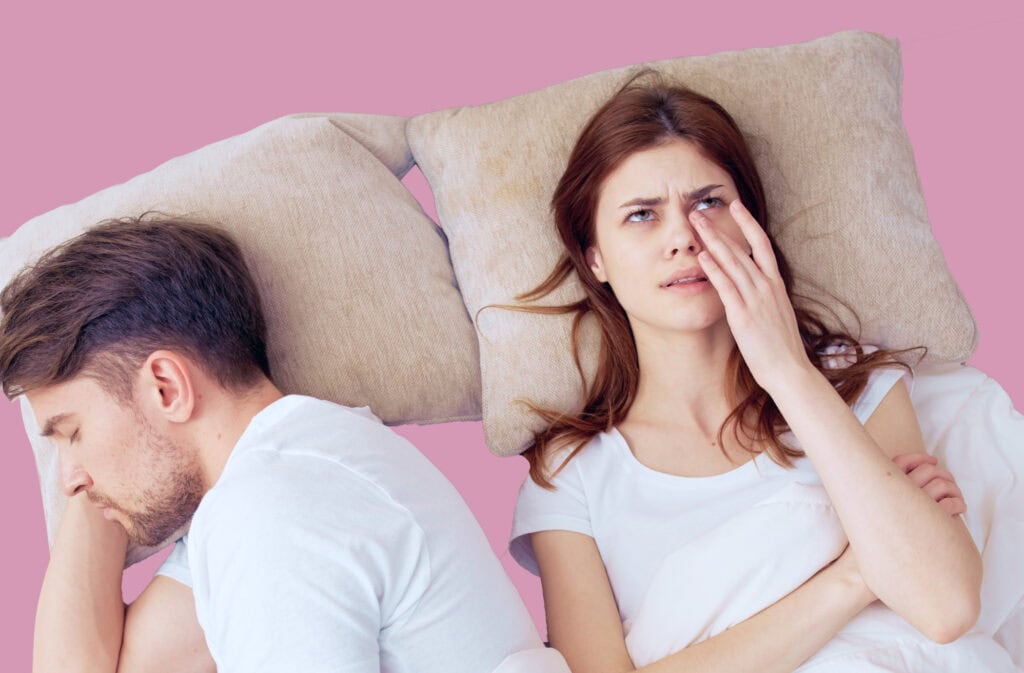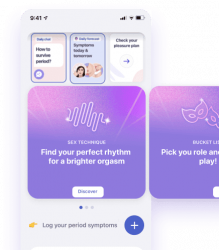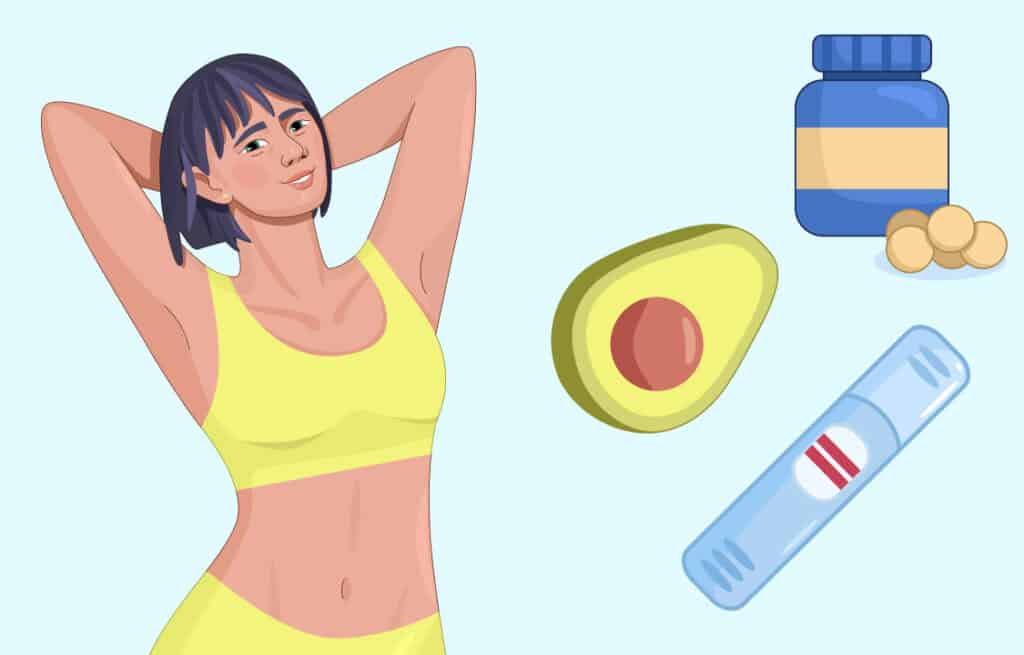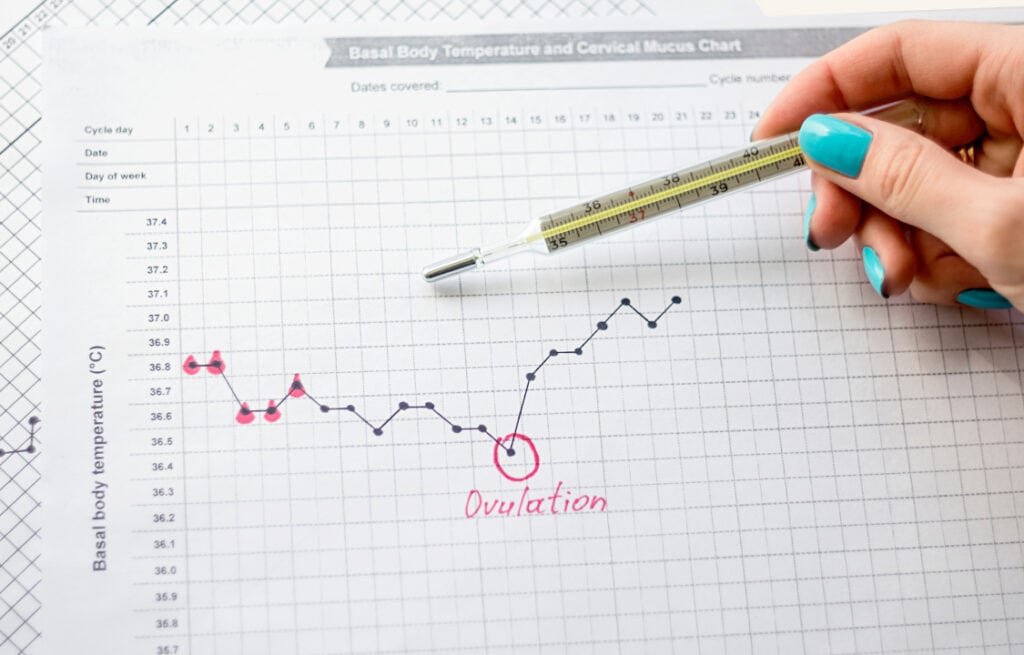Femia > Health Library > Your cycle > Sex > Why do I feel sick after sex? Understanding post-sex nausea in women
Why do I feel sick after sex? Understanding post-sex nausea in women

- Updated Feb 25, 2025
- Published
CRAFTED BY HUMAN
Crafted by human At Femia, we provide accurate and up-to-date information at every stage of your journey, from trying to conceive, pregnancy and postnatal support. All content is created by a real person based on in-depth research and own professional experience. Femia ensures that you will receive expert advice, strict accuracy and a personalized approach from our authors/medical experts. Learn more about our editorial policy.
FACT CHECKED
Fact checked At Femia Health, we maintain the highest standards of editorial excellence in delivering content focused on helping you conceive, guiding you through pregnancy, and supporting you postpartum. Explore our content review principles to learn how we ensure the accuracy and quality of our health and lifestyle tips for every stage of your journey.
- Feeling nauseous or unwell after sex is common for many women and usually not a cause for concern.
- Possible causes include hormonal fluctuations, physical exertion, anxiety, and existing digestive issues (for anal sex).
- To reduce discomfort, try more foreplay, use lubrication, experiment with positions, and stay hydrated.
A healthy sex life is a natural part of every human’s life, which can grant you a variety of benefits. Particularly for us women, it’s associated with immune system boost, lower blood pressure, depression and anxiety relief, improved sleep, immediate and natural pain relief, and many other perks. Besides, sex is a way of boosting your mood and receiving pleasure.
But what if you’re not feeling your best after sex?
You might be surprised, but the question “Why do I feel sick after sex” is rather popular among women. It can be found in many forums and, apparently, it causes regular frustration and concern. However, while it’s hard to estimate the real number of women who feel nausea, pain, weakness, and other adverse sensations after sex, we can safely say that there are a lot of reasons why they can occur.
These symptoms are usually not a cause for concern and are manageable. From this article, you’ll learn what causes nausea after sex, what other symptoms might also be present, and how to manage them.

Common сauses of nausea and discomfort after sex
Although feeling sick after an activity that is supposed to bring you pleasure can be incredibly frustrating, it’s not uncommon. If you dig into women’s forums, you might find plenty of questions like:
- Why do I feel sick after sex (female)?
- Why do I feel bloated after sex?
- And many others.
Let’s look at some common reasons that may cause nausea and other unpleasant sensations after sex:
- Hormonal fluctuations. Females have two primary sexual and reproductive hormones: estrogen and progesterone. Studies found that sexual activity is linked to higher concentrations of these hormones. When their levels fluctuate naturally during your cycle, they might make you feel nauseous.
- Pelvic inflammatory disease (PID). PID is an infection of the female reproductive system. This disease, as well as sexually transmitted infections, can cause discomfort during and after sex.
- Endometriosis. This is a chronic condition in which the inner lining of the uterus begins to grow outside the uterus. It’s associated with multiple symptoms that can occur during or after sex. Nausea is a common symptom. It’s often accompanied by pain during sex, severe menstrual cramps, diarrhea, constipation, and others.
- Physical exertion. Very active intercourses might put too much pressure on your body, causing increased blood pressure and hyperventilation. So if you are wondering “Why do I feel weak and shaky after sex?” It might be because of the highly physical nature of sex. Nausea caused by physical exertion is often called exercise-induced nausea.
- Lack of foreplay. Foreplay is a crucial element of sex, especially for women. It helps build up arousal and stimulate blood flow to the genital area. Without it, there might not be enough arousal and lubrication, which might lead to physical trauma and discomfort both during and after sex.
- Vasovagal response. The vagus nerve is one of the most important nerves in your nervous system. It is the largest cranial nerve and runs from your brain to your large intestine. It transmits signals between your brain, heart, and digestive system. Since sexual intercourse and orgasm physiologically stimulate the vagus nerve, sometimes, sexual activity can result in a vasovagal response accompanied by lightheadedness, nausea, and other symptoms.
- Position and pressure. Some sexual positions or excessive pressure on the abdomen may also lead to discomfort. They may result in lower abdominal pain and nausea after being sexually active.
- Psychological factors. Post-sex nausea might also result from excessive stress and anxiety. This happens because stress makes your body release a flood of hormones to prepare for a potential threat. These hormones affect various body systems, including your digestive tract. Before and during sex, excessive stress and anxiety might be caused by a variety of reasons, including exploring with a new partner, body image issues, etc.
👉Find out more: Does period sex make you more attached? Exploring the emotional and spiritual aspects
Nausea after anal sex
For individuals who practice occasional or regular anal sex, feeling cramping or nauseous isn’t rare either, especially if there are any existing digestion or stomach concerns. The physical motion made during anal sex may put extra pressure on your digestive system and intensify existing issues. This is particularly relevant for females who have a history of the following conditions:
- Anal fissures. These are tears or cracks in the lining of the anal canal. These might occur due to anal trauma and result in pain and rectal bleeding. Anal sex might cause fissures or make them larger due to added pressure.
- Crohn’s disease. This is a kind of inflammatory bowel disease (IBD) that results in irritation and swelling of the digestive tract. Common symptoms are abdominal cramps, bleeding, and diarrhea. If anal intercourse occurs during the active stage of Crohn’s, it might worsen the inflammation and make you feel sick.
- Hemorrhoids. These are swollen veins (similar to varicose veins) that form inside the lower rectum or anus and may cause irritation, swelling, pain, and discomfort. Having anal sex may increase the tension in the irritated rectum or anus, resulting in unpleasant sensations.
- Irritable bowel syndrome. This is a common chronic condition that affects the gastrointestinal tract and may cause abdominal pain, cramping, bloating, gas, and changes in bowel movement. When the condition is in its active phase, anal sex might cause additional irritation and discomfort.
- Ulcerative colitis. This is a chronic IBD that causes inflammation and ulcers in the inner lining of the colon and rectum. It can cause bleeding, pain, cramping, and other symptoms, which might also worsen during anal sex.
When the symptoms of any of these conditions are under control, it’s generally safe to have anal sex. However, it always requires additional preparation to mitigate discomfort or potential unpleasant sensations after sex.
It’s important to remember that the rectum doesn’t produce enough lubrication to ensure seamless penetration. Hence, friction during anal sex might cause injuries and overall unwellness, including nausea, bloating, and so on.
Additional preparation to mitigate discomfort after anal sex
- Start small and slow. The anal sphincter requires time to dilate. That’s where anal trainers and plugs might come in handy to prepare for sex and minimize the risk of injuries.
- Use lubricants. These make up for the lack of natural lubrication in the anus and prevent friction-induced trauma.
- Choose positions wisely. Some positions may allow excessively deep penetration or put additional pressure on the abdomen, which can lead to feeling nauseated or even injury.
- Communicate with your partner. Due to potential discomfort, anal sex takes deep trust to bring the most pleasure. Be open to discussing your wants and concerns, and explore ways to make it comfortable for both of you.
👉Find out more: Does stomach pain after sex mean you are pregnant?
Does getting nauseous after sex mean you’re pregnant?
It’s a commonly known fact that nausea and vomiting are among the first pregnancy signs women may notice. This fact makes some females wonder:
“Why do I feel nauseous after sex? Could it mean that I’m pregnant?”
Of course, feeling nauseated a few hours or even a day after sex can feel somewhat confusing. However, it’s just a myth that nausea after sex can be an early sign of successful conception.
The truth is that fertilization takes place within 24 hours of ovulation and implantation occurs 6 to 12 days after ovulation. That means, even if you’re trying to conceive, feeling nauseous right after sex or even a few days later is just too early to indicate pregnancy.
Besides, most women start experiencing morning sickness between weeks 4 and 7, when pregnancy hormones build up in your body enough to show early pregnancy signs. These symptoms may appear at any time, not necessarily just after sex.
Practical tips for relief
If you face nausea after sex, these simple tips might help:
- Take it slowly and begin with foreplay to prepare your body for intercourse. If you feel discomfort during penetration, communicate with your partner and make changes to eliminate the pain.
- Use additional lubrication if necessary.
- Experiment with different sexual positions to find options that are the most comfortable for you.
- Make it a habit to drink more water to prevent dehydration.
- Consider having sex on an empty stomach, or at least make sure you haven’t eaten any heavy or fatty foods.
- Practice mindfulness, relaxation, and stress-relief techniques before and after sex to minimize anxiety.
- If you already had sex and are feeling nauseous, try taking a few deep breaths to relax before you get up and go on with your day. This may help stabilize your blood pressure and bring some relief.
When to be concerned
In general, feeling nauseous after orgasm for a female is not a cause for major concern. It’s not uncommon to feel overall sickness, including nausea, dizziness, and weakness, and there are many normal reasons for feeling them, including hormonal fluctuations and vigorous sex, among others. These post-sex symptoms are typically manageable and temporary. However, you might want to keep a closer eye on your post-sex state if it becomes persistent or severe.
Feeling sick after sex might be a sign of a more serious underlying condition, such as pelvic inflammatory disease (PID) or endometriosis. In this case, general symptoms of discomfort are frequently accompanied by additional symptoms, such as severe pain in the lower tummy or pelvis, pain during sex, bleeding, and others. The duration of sickness might also signal more serious problems, for example, if you’re cramping or feeling nauseous for several days after sex.
In these cases, it’s recommended to seek personalized medical advice.

Questions from the Femia community
Can certain foods before sex can make me feel sick after?
Yes, physical activity and pressure on the stomach during sex can make some foods contribute to feeling sick afterward. These typically include heavy or fatty foods. Spicy food might also create discomfort as it can cause acid reflux, which is known to contribute to nausea.
Sometimes I feel lightheaded or dizzy after sex, is it normal?
Yes, sex can leave you lightheaded or dizzy for a number of reasons, including a drop in blood pressure, dehydration, stress (arising for reasons like starting a new relationship), and hyperventilation from quickened breathing. In most cases, feeling lightheaded after sex isn’t a cause for alarm, but you should make a mental note if it happens frequently.
Can different phases of my menstrual cycle affect how I feel after sex?
Yes, stepping into different phases of your cycle triggers natural fluctuation in your hormonal levels. Hormones can affect your bodily reactions, potentially leading to discomfort or increased sensitivity, as well as feeling nauseous.
The bottom line
Nausea after sex or other discomforts can be very unpleasant and even disturbing. Luckily, there are often simple explanations for not feeling your best after sex, such as excessive stress, abdominal pressure, being in an uncomfortable position for too long, or hormonal fluctuations. In many cases, unpleasant post-sex sensations caused by these and other natural reasons are temporary and can be managed through simple tricks like staying hydrated, taking time for foreplay, and mindfully relaxing.
If you ever experience post-sex nausea and discomfort, remember that it’s often not a cause for major concern. However, if you notice that symptoms persist or cause significant distress, consider communicating openly about them with a healthcare provider to get personalized advice.
References
- “The Benefits of a Healthy Sex Life.” OHSU’s Center for Women’s Health. https://www.ohsu.edu/womens-health/benefits-healthy-sex-life.
- Prasad A, Mumford SL, Buck Louis GM, Ahrens KA, Sjaarda LA, Schliep KC, Perkins NJ, Kissell KA, Wactawski-Wende J, Schisterman EF. “Sexual activity, endogenous reproductive hormones and ovulation in premenopausal women.” Horm Behav, Jul. 2014. https://www.ncbi.nlm.nih.gov/pmc/articles/PMC4127088/.
- “Pelvic inflammatory disease.” The National Health Service (NHS), 27, Jan. 2022. https://www.nhs.uk/conditions/pelvic-inflammatory-disease-pid/.
- Megan Wasson. “Endometriosis.” Mayo Clinic, 12, Oct. 2023. https://www.mayoclinic.org/diseases-conditions/endometriosis/symptoms-causes/syc-20354656#:~:text=Endometriosis%20is%20a%20condition%20in,including%20the%20bowel%20and%20bladder.
- Samborski P, Chmielarz-Czarnocińska A, Grzymisławski M. “Exercise-induced vomiting.” Prz Gastroenterol, 2013. https://www.ncbi.nlm.nih.gov/pmc/articles/PMC4027831/.
- “Stress Nausea: Why It Happens and How To Deal.” Cleveland Clinic, 18, Feb. 2022. https://health.clevelandclinic.org/what-is-stress-nausea-and-how-to-deal-with-it.
- “Morning sickness.” The National Health Service (NHS). https://www.nhs.uk/start-for-life/pregnancy/morning-sickness/#:~:text=Morning%20sickness%20begins%20early%20in,the%20causes%20of%20morning%20sickness.

Discover natural ways to boost fertility in your 30s and get tips for getting pregnant in 30s. Learn about diet, lifestyle changes, and when to seek medical advice.

Discover why ovulation might make you horny. Learn about hormonal changes, increased libido, and how to manage heightened sex drive during ovulation. Expert insights from Femia.

Wondering if ovulation pain means you’ve missed your chance to conceive? Learn about the timing of ovulation pain, conception possibilities, and what it means for pregnancy.

